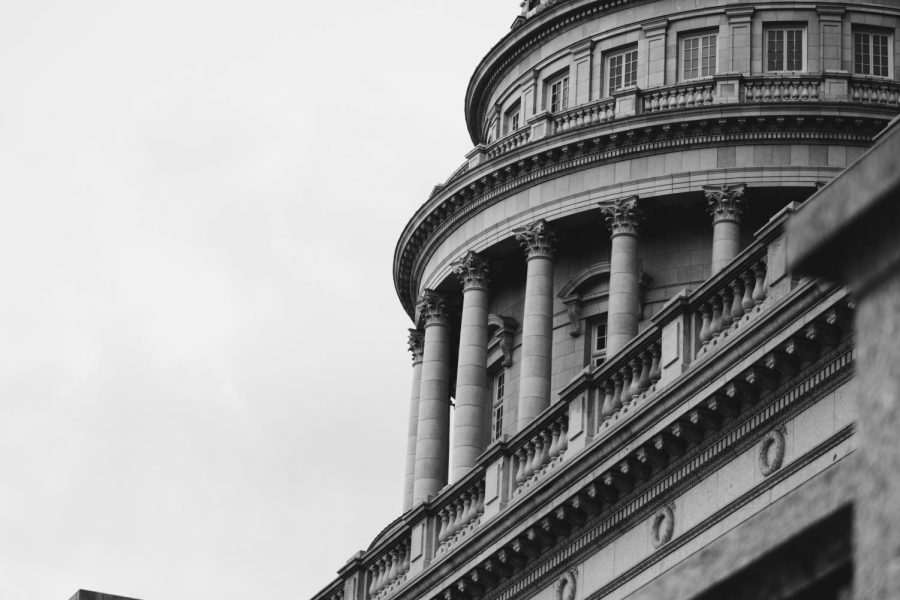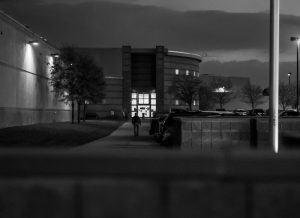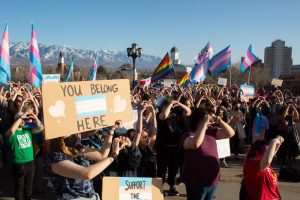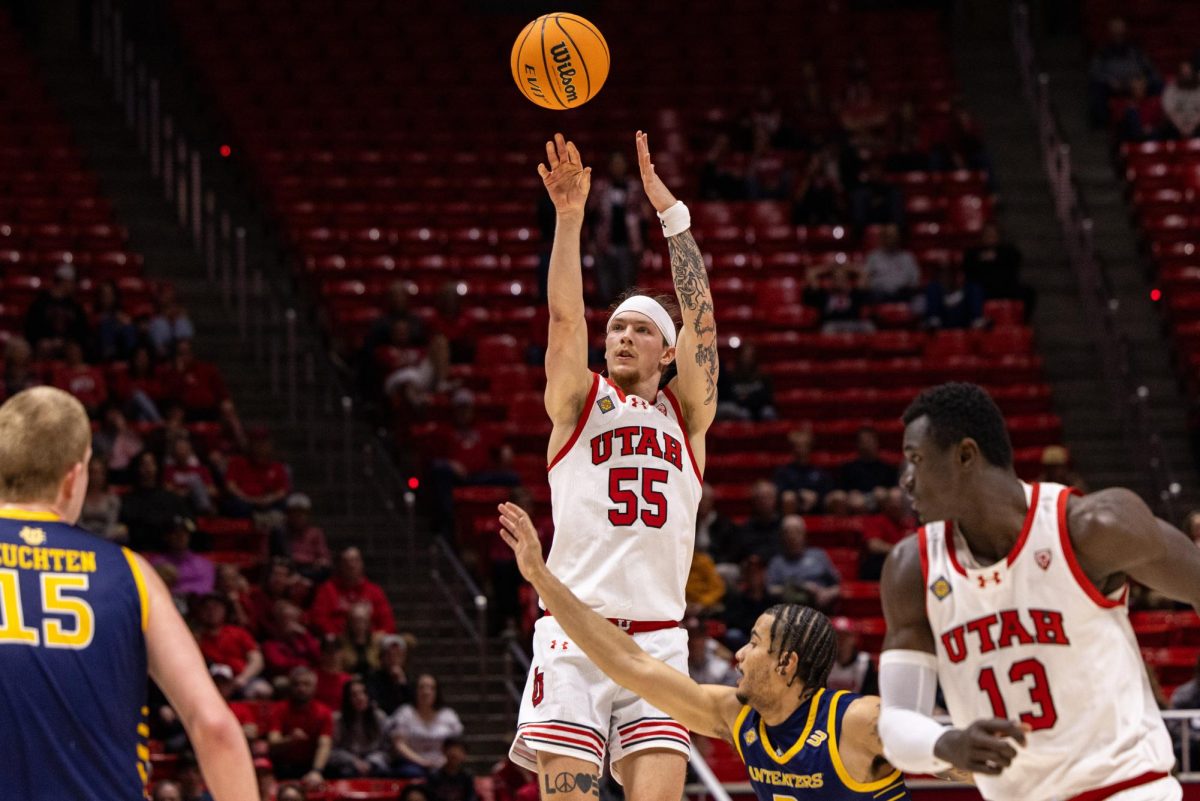Lezaic: We Have a Right to Public Comment
The Utah State Capitol Rotunda on Friday, Feb. 12, 2020. (Photo by Mark Draper | Daily Utah Chronicle)
February 20, 2023
This year’s legislative session has produced a variety of disheartening and harmful bills. Although not as explosive as some of its counterparts, H.B. 21 aims to expand the opportunity for public comment and would be a crucial addition to our state’s law. As we experience an intensifying barrage of attacks on Utah’s most vulnerable communities, it’s critical to expand and utilize every opportunity to speak out.
The Details of H.B. 21
H.B. 21, an amendment to the Open and Public Meetings Act, is sponsored by Rep. Joel Briscoe. The bill calls for public meetings to allow a “reasonable opportunity for the public to provide verbal comment during the meeting.”
“If you read further along in state code in the Open and Public Meetings Act, it infers and implies that there will be public comment, but it never specifically states that public bodies will have public comment,” Rep. Briscoe said. “So H.B. 21 states explicitly that — with a few exceptions — public bodies will allow public comment at their meetings. Planning meetings are excluded. Work meetings are excluded.”
Jeffrey Hunt, a highly accomplished lawyer with over 30 years of legal experience, explains why specific meetings are exempt. In an email interview, Hunt wrote, “Planning commissions conduct hearings and make decisions on land use matters. They have specific procedures that govern their meetings and hearings that allow for public comment so that is why there is an exception.”
“A work session is not defined, but typically means a meeting of the public body where no action is taken,” Hunt said. “For example, a work session could be held to work on the budget or transportation issues. I am guessing the rationale for excepting them from the public comment requirement is that those meetings are typically focused on a specific subject matter and the more appropriate forum for public comment would be the regularly scheduled meeting of the public body.”
Sunshine Laws and Accessibility
This type of bill falls under the umbrella of sunshine laws, which require transparency from government agencies when it comes to meetings. Transparency and a right to be involved in the government’s decision making is important to people, as proven by public outcry 12 years ago when our legislature tried to undermine the Government Records Access and Management Act.
We’ve seen state legislatures all over the country expand access to their meetings over the course of the pandemic. Though it should’ve happened sooner, there was a shift to online accessibility as the virus heightened a need for safe means of congregation. This is important because, as Hunt said, “allowing members of the public to provide comment, particularly through use of virtual platforms so they don’t have to appear in person, allows people to participate more directly in government and be heard.”
On the other hand, the pandemic’s divisive reality shut down some conversations. “In the last couple of years, there have been some public bodies that have closed down public comment,” Briscoe said. “The attorneys of the legislature tell me that there’s a lot of inconsistency in open public meeting law, and everything’s not really well-defined. I’ve been lobbied by the city to exclude certain groups.”
But Briscoe disagrees with this. “If you’re an elected official, you have an obligation to hear things you don’t want to hear sometimes,” he said. “People are allowed to come and tell you they think you’re crazy or they don’t like your policy. I’m just trying to run a bill saying people have the right to make a public comment in public meetings, and it’s getting all this attention. And it’s like, well we don’t believe in talking to each other in public meetings?”
The Value of Public Comment — and How to Participate
Public comment gives people a chance to advocate for themselves. “We do it so the city council can’t have lunch together and decide who the next police chief is at a non-public meeting,” Briscoe said. It’s important to know things like “who they’re going to buy police cars from. You know, are they going to buy them from some guy’s brother-in-law?”
It’s especially crucial as we see some legislators target trans people, displace west-side residents for their investment in land development and compromise the well-being of Utahns and our environment.
“The public really needs to keep an eye on us,” Briscoe said. “I mean, you need to keep an eye on your city council, your school board. You just need to pay attention.”
One way to pay attention is to keep track of this year’s legislation online.
“The legislature’s website is fairly easy to use,” Briscoe said. “You can find out ahead of time. Almost every meeting I’ve been in in the last two weeks, we’ve had people in person on the hill, and we’ve had comment online. We’ve had someone online raise their hand and the committee chairs called on them to speak, so you don’t even have to attend in person. Go to le.utah.gov. Find the committee that discusses the legislation that you’re interested in and listen in. And if there’s something going on in particular, a piece of legislation you like or dislike or have a question about? One, get registered to vote. Two, find out who your legislators are. Three, communicate with them.”
H.B. 21 is a bill that could help people fight for themselves and their communities. As Briscoe put it, “Words matter. And I’ve never seen an issue not get better when people wanted to resolve an issue by talking.”












